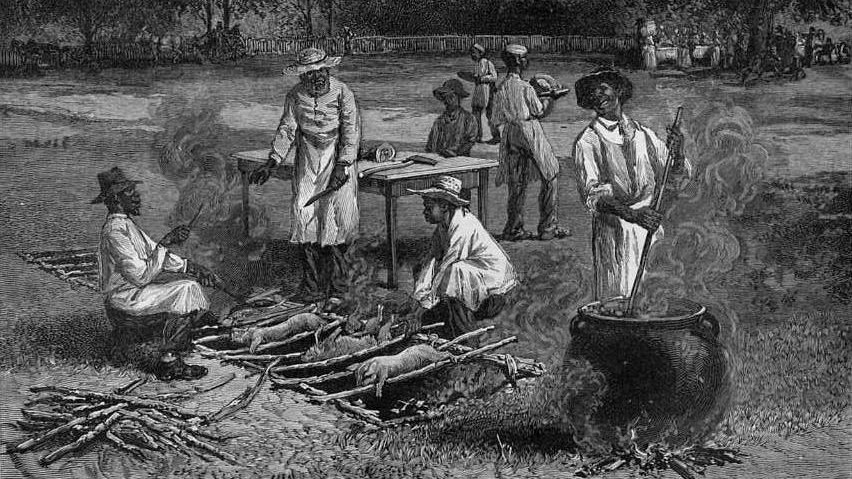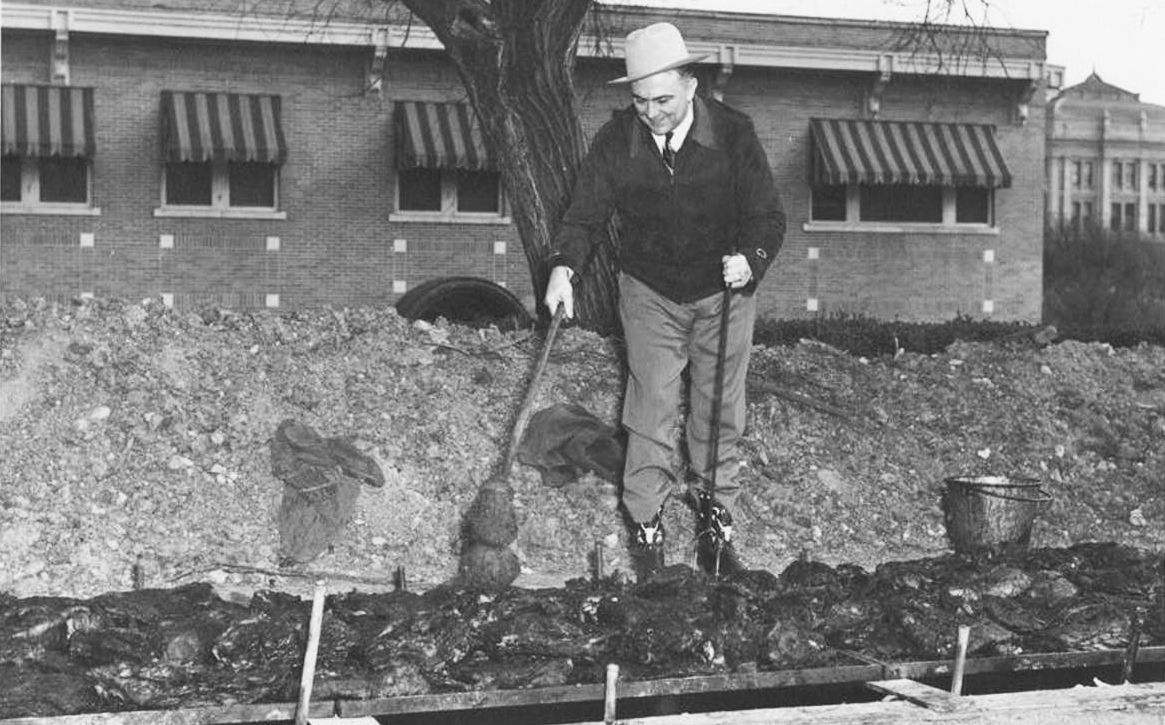Authors:
Historic Era: Era 10: Contemporary United States (1968 to the present)
Historic Theme:
Subject:
July/August 2020 | Volume 65, Issue 4


Authors:
Historic Era: Era 10: Contemporary United States (1968 to the present)
Historic Theme:
Subject:
July/August 2020 | Volume 65, Issue 4

The Fourth of July and barbecue—and when we say barbecue we’re not talking hamburgers on a gas grill but traditional and delicious slow-pit-cooked pork, beef, and other meats—go together like… well, like Mom and apple pie. Except that apple pie came pretty directly from Europe and barbecue is as American as it gets: developed here, refined here, and enjoyed here, particularly on that quintessential American day of celebration—the Fourth of July.
Barbecue on the Fourth is an American tradition that goes back centuries. Millers Weekly Messenger reported a celebration on July 4, 1808, in what is now Oconee Station, South Carolina, where the local militia put on their Fourth of July parade and then, “a short address suited to the occasion was delivered by the Rev. Mr. ANDREW BROWN; after which they marched to an agreeable and natural arbor, where, in the company with a number of others, they partook of an elegant barbecue.”

Famous naturalist John James Audubon attended a Fourth of July party in Kentucky in the early 1800s, and waxed a bit poetic about it: “As the youth of Kentucky lightly and gaily advanced toward the Barbecue, they resembled a procession of nymphs and disguised divinities…it served to remind every Kentuckian present of the glorious name, the patriotism, the courage, and the virtue of our immortal Washington.”
And let’s not forget Frog Bayou, Arkansas where, in 1846, according to the Arkansas Intellegencer: “The noble steer was immolated at this sacrifice—lambs, shoats, and poultry sent up their quotas to this patriotic feast.”
But it’s old-fashioned big business. No multinational chain can yet make good barbecue; you’ve apparently got to be an old-fashioned individualist, hardworking, innovative, and maybe more than